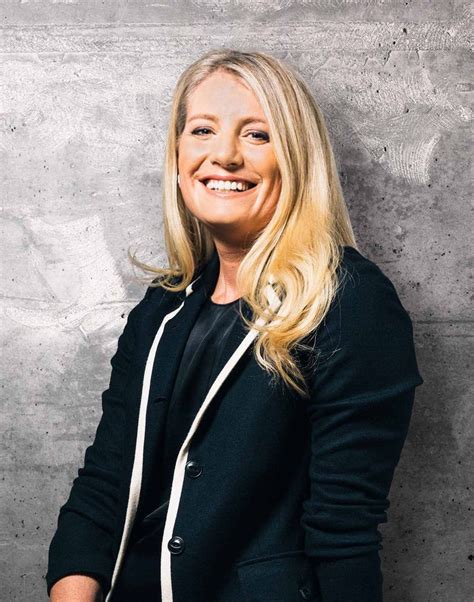A Quote by Blake Lively
I think I'm very much an entrepreneur, but I know I have the ability to start a company in a lot of ways than other people who are more qualified because I have this existing brand as an actress.
Related Quotes
A lot of people want to be an entrepreneur, so it's important to know that there's a lot of ways to be an entrepreneur. One of the ways is to go about and start your own business. There are also ways that you can gain experience in the context of a larger business, like raising your hand to helm a new office. As you are gaining your skills to run your own business successfully, the first way is to think about how you can do so based on where you already are.
I'm also a big believer of being a scrappy entrepreneur. To be successful you don't have to have all this crazy start-up capital or a ton of knowledge. I think it's actually helpful sometimes to not know all the rules because that way it's easier to break them. And that's why it's so much easier for younger people, I think, to start companies that are challenging more traditional business models than older people. Especially if you're trying to do something good.
It's an amazing time to be an entrepreneur because not only is the stuff getting more capable and powerful, but it's becoming more reliable and the costs are coming down dramatically. So you can go out as an entrepreneur and start a company on a credit card and go to AWS and a few other services and be pretty virtual and, who knows, you may be the next Steve Jobs.
I think that we did a really good thing when we elected Barack Obama. I read his books. He is absolutely and totally qualified for the job. He's proven himself to be not only qualified for the job, but very good at it. The things that he's managed to get accomplished in the face of so much push-back is amazing, and I think - this is Morgan Freeman's personal thought - we're going to be in a lot of trouble if we don't reelect him, because the people on the other side of the fence scare me.
The directing thing, to do it well, I think you have to have a hell of a lot more discipline than I do, or be a lot more willing to really take charge of whole large group of people than I feel comfortable doing - because a director really has to run everything, and be very confident in their ability to do so.
When you're in a start-up, the first ten people will determine whether the company succeeds or not. Each is 10 percent of the company. So why wouldn't you take as much time as necessary to find all the A players? If three were not so great, why would you want a company where 30 percent of your people are not so great? A small company depends on great people much more than a big company does.
I don't think I'm a risk-taker. I don't think any entrepreneur is. I think that's one of those myths of commerce. The new entrepreneur is more values-led: you do what looks risky to other people because that's what your convictions tell you to do. Other companies would say I'm taking risks, but that's my path - it doesn't feel like risk to me.
I'm not judging the films. People make these connections through a film, or because they know them. But the fact that they erase them and have to start from scratch, I think that's an important point. A lot of kids, when they have a camera, have tended to do remakes of existing films. You have a lot of kids that make Star Wars. And I think that's creativity, but not as much creativity as starting from scratch.



































